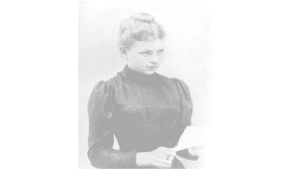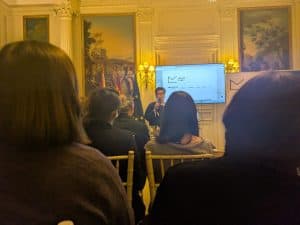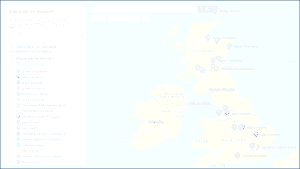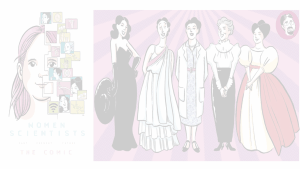
“Woman teaching Geometry” 14th Century Illustration
The latest decades have witnessed the incorporation of women into areas of our society that weren’t accessible for them before because, historically, they have been set aside. Women have knocked on the door of progress demanding an active role in the social development. But have things really changed so much for them, for us women?
Science has represented one of those areas where women have been incorporated like a dropper. Nowadays, the first world women can obtain a Science degree, can study a PhD, can do science research. We can but… Do we do it? Under which conditions? The same as our male counterparts?
If we only trust what our eyes see we could say the answer is yes. I decided for myself that I wanted to study a Science degree, that I wanted to do science research, obtain a PhD and continue my training with a postdoctoral stay. And I did it, I did all I wanted to do. But looking back to these almost 15 years surrounded by Science, I realise with surprise that I remember a lot of moments where I had to give in and put up with situations and comments that were everything but encouraging to pursue my scientific career. Unfortunately, I had to hear, from male and female colleagues from all ages and nationalities, phrases like “women are worse scientists” or “she publishes well because she is the apple of the boss’s eye”, and also suffer in my own skin to be called hysterical or to be told “be more scientific and les girly” in a scientific discussion. It doesn’t sound very encouraging, does it?
Video made by Cátedra de Cultura Científica of the Basque Country University
Recently a study was published saying that 6 years old girls already consider themselves less intelligent than the boys of their age, preconceived ideas that have a big impact over their professionals aspirations. If there aren’t more female mathematicians, physicist or engineers is surely because when they were growing up they have received constant messages inciting them to alter the course of their journey. These are the stones on the path that we need to avoid to be able to work in what we like the most, Science. At least these are the stones we are able to see but, obviously, they aren’t as big as the ones our predecessors had to beat, but they are the germ of deeper roots that prevent us, in a veiled way, from progressing and achieving the full development of our scientific potential. These stones are the seed of the insecurity and discredit ghost, and they grow, not only on us women at a very early age, but also in the subconscious of those men and women that are entitled to mentor us or to evaluate our scientific work, either to publish in a scientific journal or to obtain a grant or a promotion. The stones that we don’t see are the most harmful ones y they knock into shape what it has been called the Matilda effect.
 The Science historian Margaret Rossiter named the Matilda effect, derivative of the Mateo effect defined by the sociologist Robert Merton, after the suffragist Matilda J. Gage that denounced this phenomenon. According to the Matilda effect, a female scientist will benefit less or nothing from the Science reward system in comparison to her male colleagues only because she is a woman, receiving less recognition and even denying the scientific authorship of her own research work. There are some well-known examples in our history. That’s the case of the Irish astrophysicist Jocelyn Bell Burner, the Austrian physicist Lise Meitner, the British chemist / physicist Rosalind Franklin, the also polish chemist / physicist Maria Sklodowska (better known as Marie Curie) or the austrian physicist Marietta Blau. But we don’t need to go that far. In Spain the Matilda effect also exists. Most Spaniards aren’t able to at least mention a single female scientist and this proves that the Matilda effect exists.
The Science historian Margaret Rossiter named the Matilda effect, derivative of the Mateo effect defined by the sociologist Robert Merton, after the suffragist Matilda J. Gage that denounced this phenomenon. According to the Matilda effect, a female scientist will benefit less or nothing from the Science reward system in comparison to her male colleagues only because she is a woman, receiving less recognition and even denying the scientific authorship of her own research work. There are some well-known examples in our history. That’s the case of the Irish astrophysicist Jocelyn Bell Burner, the Austrian physicist Lise Meitner, the British chemist / physicist Rosalind Franklin, the also polish chemist / physicist Maria Sklodowska (better known as Marie Curie) or the austrian physicist Marietta Blau. But we don’t need to go that far. In Spain the Matilda effect also exists. Most Spaniards aren’t able to at least mention a single female scientist and this proves that the Matilda effect exists.
Among the female researchers forgotten by our historic memory, we find examples of great women such as the genetist Jimena Fernández de la Vega awarded by the Junta de Ampliación de Estudios (JAE) that became the director of Genetics Laboratory at the Central University; the oceanographer Mª de los Ángeles Alvariño who became a member of the Marine Science Centre of California where she discovered many sea species; and also the botanist Blanca Catalán de Ocón that gave her name to some plant species. Probably one of the best examples of the Matilda effect in the Spanish History it’s what happened to the chemists María Teresa Salazar and Piedad de la Cierva. After a very successful scientific career overseas, they both applied repeatedly for professorship positions at the University, and even though they had a better curricula that their opponents, they were rejected on the grounds of “causes that can be disclosed” and even in one occasion, the position was left void to avoid awarding it to a woman.
 But let’s go back to the present: how can we change this? The efforts of these women weren’t in vain and, thanks to them and their persistence, nowadays female scientists have a more privileged position in the scientific field, although not without obstacles. The angles of the contemporary Matilda effect are many: glass ceilings, work/life balance, inequality of opportunities, social awareness, stereotypical roles, denial of recognition…etc. The key is to change the image that our society has about women and, in this case, related to Science. The solution will certainly include initiatives to improve education in equality and the use of female role models in the classroom, as well as a better visibility of the role of women in STEM and the establishment of programs to help guarantee the equality of opportunities in the scientific career.
But let’s go back to the present: how can we change this? The efforts of these women weren’t in vain and, thanks to them and their persistence, nowadays female scientists have a more privileged position in the scientific field, although not without obstacles. The angles of the contemporary Matilda effect are many: glass ceilings, work/life balance, inequality of opportunities, social awareness, stereotypical roles, denial of recognition…etc. The key is to change the image that our society has about women and, in this case, related to Science. The solution will certainly include initiatives to improve education in equality and the use of female role models in the classroom, as well as a better visibility of the role of women in STEM and the establishment of programs to help guarantee the equality of opportunities in the scientific career.
Female scientists like me don’t want a privileged position in the scientific community but the position that we deserve according to our own merits and to our gender. Because we can’t forget that both, female and male scientists, build Science.
If you want to know more about the role of Women in Science, do not hesitate to read the report that we have elaborated about this issue at the Society of Spanish Researcher in the UK: https://sruk.org.uk/content/womeninscience
By María Barreira González, Research Scientist and Chief Editor of this blog. SRUK London Constituency.
Related news:
Ateneas cientificas para derrumbar el techo de cristal, by Dr Nerea Irigoyen Vergara, El Pais.
Related initiatives and organisations:
11 de Febrero: Dia Internacional de la Mujer y la Niña en la Ciencia
Blog Mujeres con Ciencia, Cátedra de Cultura Científica, Universidad del Pais Vasco.






